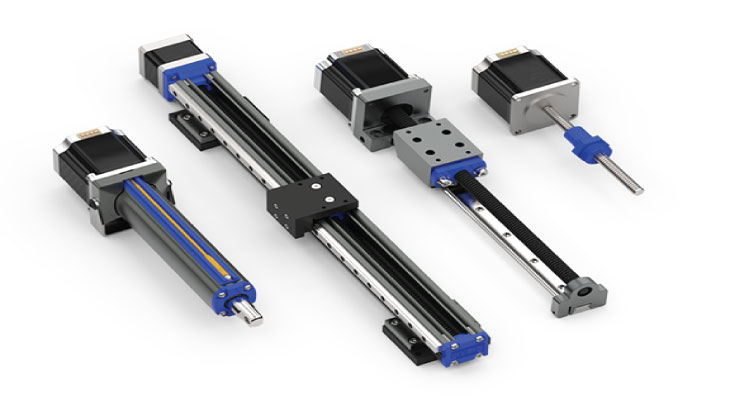Top 10 Mechanical Actuator Questions Answered

Most design engineers know that a mechanical linear actuator is a device that converts rotary motion into linear movement—such as lead screws, ball screws, and acme screws. But do you know how fast an actuator can or should move? What are the advantages and disadvantages of different types of linear actuators? How can you improve performance?
Here are answers to the Top 10 mechanical actuator questions we get asked:
Q: How fast can the mechanical actuator travel in terms of inches per second?
A: The actual speed of a given actuator is highly dependent on the size and weight of the load that it moves. For practical purposes, the maximum speed is 50 inches per minute.
Q: How large of a load can it handle? In other words, how much thrust can it impart?
A: Of course, the amount of thrust capacity it generates depends on its size and rating. Generally speaking, thrust capacities range from 500 pounds to 200,000 pounds.
Q: How precise in terms of positional accuracy can the actuator be?
A: Positional accuracy can be expressed as both positioning time—how exact in terms of time is the load delivered to a specific position—and actual position—how close the load is delivered to the intended location or spot. Mechanical linear actuators can provide positioning times of 30 milliseconds and positioning accuracy of less than 0.25 mm (0.01 inches).
Q: What advantage does a mechanical linear actuator have vs. a hydraulic actuator or a pneumatic actuator?
A: Mechanical linear actuators reduce the complexity of the design process because they are easier to specify and design than pneumatic or hydraulic actuators. Mechanical linear actuators also do not require hydraulic fluid or compressed gas (pneumatic) to operate and therefore are a lower-cost solution.
Q: Are they resistant to water and/or dust and dirt?
A: Yes, they are available with compact size configurations and enhanced IP65 protection options against solids (dust, airborne particles, etc.) and liquids (rain, water spray, etc.). These actuators are suitable for light-duty indoor/outdoor applications such as agriculture/aggregate (dampers in rock quarries, packaging, etc.).
Q: How hot does the actuator's motor get while it's operating?
A: The motor's temperature is generally dependent on its load, environment, torque, and proximity to surrounding manufacturing equipment. A motor can also become hot because of too much demand for current, such as when the binding of the motor creates the need for more torque or when the motor or drive is undersized for the specific load.
Q: How far can it travel before it wears out? In other words, what is the extent of the actuator's service life?
A: The service life is dependent on the load that it moves (and the pounds of force required to move it), the distance traveled during its operations, and the number of cycles performed.
Q: Do these actuators need to be lubricated?
A: All actuators need some form of lubrication, whether it's a special coating on the device components or the application of a lubricant. Many come with lifetime lubrication. Mechanical linear actuators require lubrication for long life and reliability, so if lifetime lubrication is not included, lubrication is required at regular intervals.
Q: Do these actuators use ball screws or acme screws?
A: Lead screws, ball screws, and acme screws are all distinct types of screws used in mechanical linear actuators. The type of actuator you need depends on your application, and every kind of drive has advantages and disadvantages. For more information, see Lead Screws vs. Ball Screws: It's All about the application.
Q: What is the operational temperature range?
A: These types of actuators operate at temperatures ranging from -30º F to 160º F.
Trust Helix as Your Actuator Partner
When you have mechanical actuator questions, you can trust Helix Linear Technologies to provide you with industry expertise, the benefits of advanced manufacturing technologies, and state-of-the-art products that result in the precise solution for your application.


